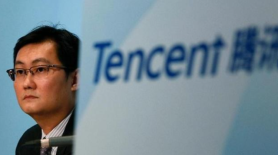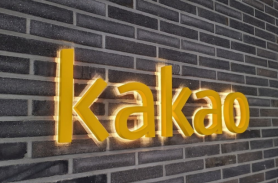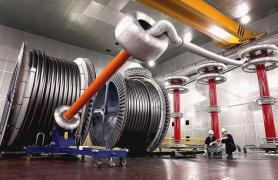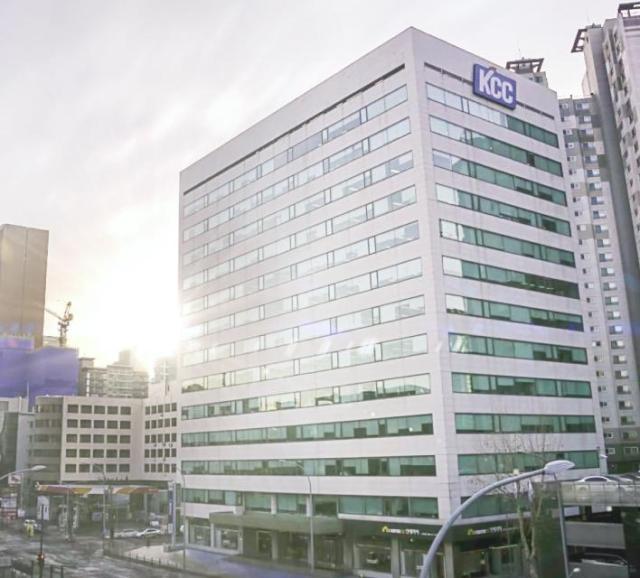
SEOUL, July 2 (AJP) - As South Korea’s construction industry struggles with a prolonged downturn, KCC Group, once a stalwart of the sector, is reinventing itself through a bold pivot toward advanced semiconductor materials and high-tech defense applications — an ambitious transformation that may redefine the company’s role in the global supply chain.
The conglomerate offered a glimpse of its future in May at PCIM Europe 2025, a leading international trade fair for power electronics held in Nuremberg, Germany.
There, KCC showcased a range of semiconductor technologies developed through its U.S.-based subsidiary, Momentive Performance Materials, one of the world’s largest providers of silicone-based solutions.
Among the highlights were active metal brazing ceramic substrates — materials that improve bonding between copper circuits and ceramics in high-performance semiconductors — drawing strong interest from global manufacturers.
KCC also unveiled direct copper bonding substrates for power modules and new high-reliability encapsulation materials, signaling its intention to become a comprehensive supplier to the semiconductor industry.
This shift marks a dramatic evolution for a company whose roots lie in postwar reconstruction.
KCC traces its founding to 1958, when Chung Sang-young, the youngest brother of Hyundai Group founder Chung Ju-yung, launched Keumkang Slate Industries. It later merged with Korea Chemical, founded in 1974, to become Keumkang Korea Chemical in 2000.
The company rebranded as KCC in 2005 and now anchors a group that includes KCC Glass, KCC Engineering & Construction, and KCC Silicone.
KCC’s move into the silicone business began with its acquisition of British firm Basildon in 2011, followed by its 2019 purchase of Momentive, a landmark $3 billion deal that gave it a foothold in the global silicone market.
In 2020, KCC spun off its synthetic materials division as KCC Silicone, which now drives nearly half of its business.
According to Korea Investor Service, silicones accounted for 45.3 percent of KCC’s revenue in 2024, with paints contributing 27.9 percent and construction materials 16.6 percent.
But the group’s traditional strengths have been under pressure. KCC’s first-quarter earnings for 2025 showed revenue rising just 0.7 percent year-on-year to 1.60 trillion won ($1.18 billion), while net income plunged 90.4 percent to 44.1 billion won amid continued weakness in the construction sector.
Analysts noted that while the company benefited from strong prices in its silicone division and the removal of one-off costs in coatings, losses in construction materials continued to weigh on the bottom line.
In response, KCC is aggressively moving into defense — a sector with demanding technical requirements and growing strategic value.
The company has secured contracts with major defense firms including LIG Nex1, Hanwha Aerospace, and Korea Aerospace Industries (KAI), and is working to develop advanced coatings that can withstand extreme heat and corrosion.
Among its most ambitious projects: coatings for low-orbit satellites and unmanned aerial combat systems, in collaboration with KAI. Over the past three years, KCC has filed 21 patents for defense-related coatings, out of 50 total applications.
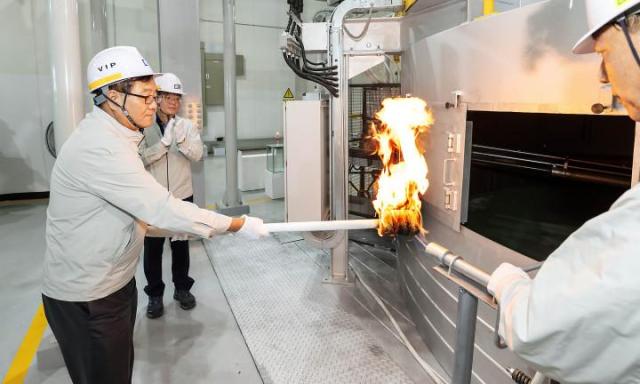
The urgency of the transformation was laid bare during a New Year’s address by Chairman Chung Mong-jin, who warned employees that 2025 would bring “the most severe crisis since the Asian financial crisis.” He called for "emergency management" and a sweeping digital overhaul of the company’s operations.
“Digital transformation based on data, which is a core asset in the AI era, is essential,” Chung said. “All business processes must be innovated around data.”
KCC's high-tech reorientation may prove essential for its survival.
A company that once helped build the foundations of modern South Korea is now betting its future on the technologies that will shape the next era of global industry — from next-generation semiconductors to space-based defense systems.
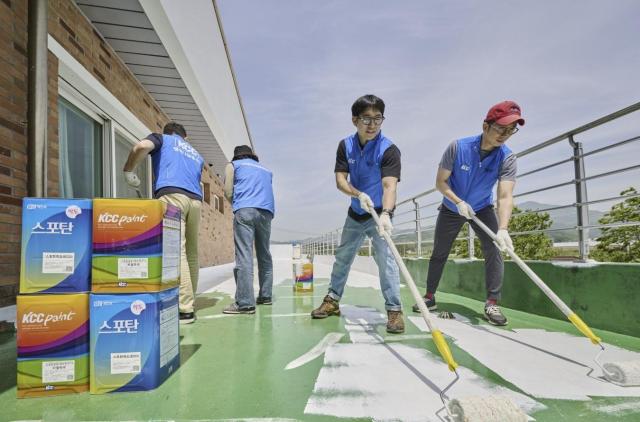
Copyright ⓒ Aju Press All rights reserved.


